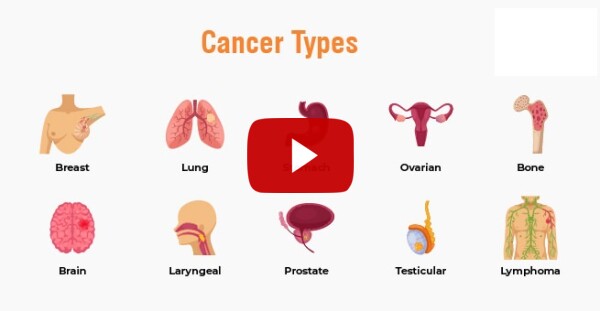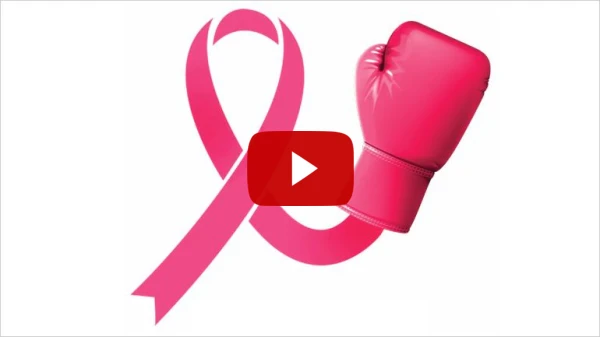Cancer, often referred to with a shudder, may feel like an unwelcome guest crashing your party. However, let’s rethink this “cancer”—what if we could smile rather than frown? In this post, we will dive deep into the world of cancers (yes, plural!), tackling questions such as “What is cancer?” and “What causes this pesky disease?” while sprinkling in some friendly humor along the way.

1. What is Cancer? Let’s Break it Down
When people ask, “What is cancer?” they generally seem to brace for a scientific lecture. But don’t panic; we’re skipping the jargon and aiming for clarity! Essentially, cancer is an unchecked growth of abnormal cells. Think of them as party crashers at your birthday celebration—uninvited, rowdy, and refusing to leave!
However, these rogue cells, known as cancer cells, can form a “neoplasm tumor,” which can be either benign (harmless) or malignant (dangerous). The malignant ones have a knack for metastasizing, moving all over the place and wreaking havoc. If you’ve ever had that friend who overstays their welcome, you know how annoying it can be. That’s cancer for you!
Now, let’s dig deeper into the various kinds of cancer disease, from those that have flashy names like carcinoma to the more under-the-radar kinds like testis cancer. Each type brings its own unique set of symptoms and challenges. So, let’s get to know them a bit better, shall we?

2. The Many Faces of Cancer: Types and Types
Ah, the fabulous world of cancer! It’s like a variety show where tumors come in different shapes and sizes. We often hear about popular cancers—breast, lung, prostate—those headlining the lists. But let’s not forget the lesser-known types, like oral cancer or neoplasm tumors.
While there are common forms of cancer, such as breast and colorectal, it’s essential to be aware of some lesser-known types. Did you know that cancer can even proliferate in your skin? The signs of cancerous tumors, including unusual bumps or changes, should definitely raise the alarm. And, if you’re eyeing those skin tags with suspicion, heed the warning—because what does cancer look like on skin can vary significantly.
So, what’s the deal with all these types? Each comes with its own signs of cancer disease that vary from alarming to annoyingly subtle. Keep an eye out for any changes in your body, especially if they don’t seem to follow the usual trend of late-night snacking or binge-watching shows!

3. Common Signs of Cancerous Tumors
Let’s get to the nitty-gritty: What are the signs of cancerous tumors? Frequently, late-night infomercials glorify the dreaded symptoms, but don’t let these scare you. Instead, think of them as cues your body gives you that it might be time for a check-up.
Signs can vary immensely depending on the type of cancer. For instance, unusual weight loss could signal cancer, just as frequent bouts of fatigue. Then there are those bold signs like lumps or growths. If you spot any suspicious changes in your body, it could be the universe giving you a nudge, saying, “Hey, let’s get that checked out!”
Oh, and let’s not forget about complexion changes. After all, our skin is our body’s billboard, advertising our health and wellness. So, if you’re wondering, “What does cancer look like on skin?”, any unusual darkening, redness, or scaling should be on your radar.

4. Understanding Cancer’s Aetiology: What Causes It?
Now, we arrive at the million-dollar question: What is the reason for cancer? It’s a puzzle we’ve been trying to assemble for decades. There’s no one-size-fits-all answer since the causes of cancer are as diverse as characters in a sitcom.
For starters, let’s talk about genetics. Yes, those lovely genes we inherit can be both a gift and a curse. When a genetic mutation occurs, it can increase your risk of developing cancer. Then, there are environmental factors—sun exposure, tobacco, and even some forms of pollution that can all be cancer triggers. So, if you see your friend smoking outside, it might be time for an unsolicited intervention.
Lastly, lifestyle choices play a significant role too. Did you know that obesity is linked to several kinds of cancer disease? That extra pizza from last night could haunt you not only in your dreams but also in your gut! Moderation is key, folks.

5. When Cancer Strikes: Navigating the Symptoms
Once you’ve bravely faced the question, “What causes cancer?”, it’s time to tackle the symptoms head-on. Recognizing symptoms early on can significantly impact one’s journey through cancer. From those unyielding fatigue levels to the occasional, what-the-heck-is-this lumps, paying attention to your body is crucial!
Many people find themselves wondering how to get cancer—a rather morbid thought, isn’t it? But acknowledging that it’s often a culmination of factors rather than a singular event can be oddly comforting. It’s not about you catching a “case of cancer” like the flu.
Instead, think of it as a lineup of signs waving at you like a row of enthusiastic cheerleaders. That’s your body’s way of saying, “Hey! Time to get checked out for cancer disease symptoms.”

6. Things to Watch—Common Cancer Symptoms
Here we go again! Symptoms galore! Some signs may look harmless, but trust your instincts—after all, early detection is key in the cancer game. Signs of a tumor can manifest as swelling, unexplained weight loss, or relentless headaches that make you want to curl up and binge-watch an entire season of your favorite show.
It’s easy to shrug off these symptoms, but doubt can be a real trickster. Always err on the side of caution. If something feels off, it usually is. This lets you channel your inner detective and advocate for yourself!
But what does cancer really look like? The truth is, there’s no universal description; it varies wildly. Some might appear as a small lump while others manifest as more aggressive changes in your body. Be your own body’s best friend and keep a watchful eye!

7. The Role of Screening in Early Detection
We’re all about the proactive approach here! So, let’s talk about the importance of screening. Mammograms, colonoscopies, and skin exams can help catch those sneaky cancer cells before they become a full-blown party. Screening might feel like a mundane task, but trust me, it’s easier to sit on that examination table now than it will be to battle stage III cancer later.
Screening brings the power back to you! Armed with knowledge, you can navigate the types of cancer disease like a pro. Early detection means you can take steps to stop cancer in its tracks!
Remember, even if you feel in tip-top shape, that’s no reason to skip your annual checkup. Those little check-ins with your healthcare provider accomplish much more than just catching up on the latest gossip; they can literally save your life.

8. Coping with a Cancer Diagnosis: You’re Not Alone
Receiving a cancer diagnosis can feel like your world has come crashing down. But guess what? You are NOT alone. There are countless resources and support systems out there to help you. Community support can help you tackle the emotional rollercoaster of feeling overwhelmed by your diagnosis.
Join support groups where humor is often a vital part of healing. Laughter can be your best medicine, helping take the weight off those cancer disease symptoms. You’ll discover that sharing stories and experiences can be deeply therapeutic, leaving you feeling supported and understood.
You may also discover alternative therapies that lighten the load of those chemotherapy sessions or support your recovery. Always consult with your healthcare provider about any remedies you consider, just to keep things safe and sound.

9. Beating Cancer: Finding Strength Within
If you’re hearing this, then congratulations! You’ve made it this far. Now, let’s talk about that fight. Contrary to popular belief, having cancer doesn’t define you. Instead, think of yourself as a warrior—ready to tackle any challenge thrown your way.
Adopting a healthy lifestyle can help you build strength during and even after treatment. Incorporate exercise, a balanced diet, and plenty of positivity! When you think of cancer patients, think of resilience, strength, and the fight to kick cancer butt!
Stay connected with your loved ones, engage with health professionals, and join community programs. It’s like a party you didn’t know you wanted to attend—except this one could save your life.

10. Waving Goodbye to Cancer: Your Next Chapter Awaits
As we wrap up this journey through the world of cancer, let’s give a hearty cheer to all the patients battling this disease. Let’s also honor those who have fought valiantly and passed the torch to others. Your stories inspire bravery in all of us, encouraging us to face life’s challenges with humor and grace.
Remember, if you ever find yourself wondering what triggers cancer or the reason for cancer disease, you’re not alone on this quest for understanding. The journey to learn more about cancer is an ongoing exploration—full of twists, turns, surprises, and yes, even laughter.
So, as you move forward, know that taking care of yourself, understanding the disease, laughing in the face of adversity, and supporting one another is truly the key to survival. Your health journey is uniquely yours, so embrace it with open arms and a healthy dose of laughter!
